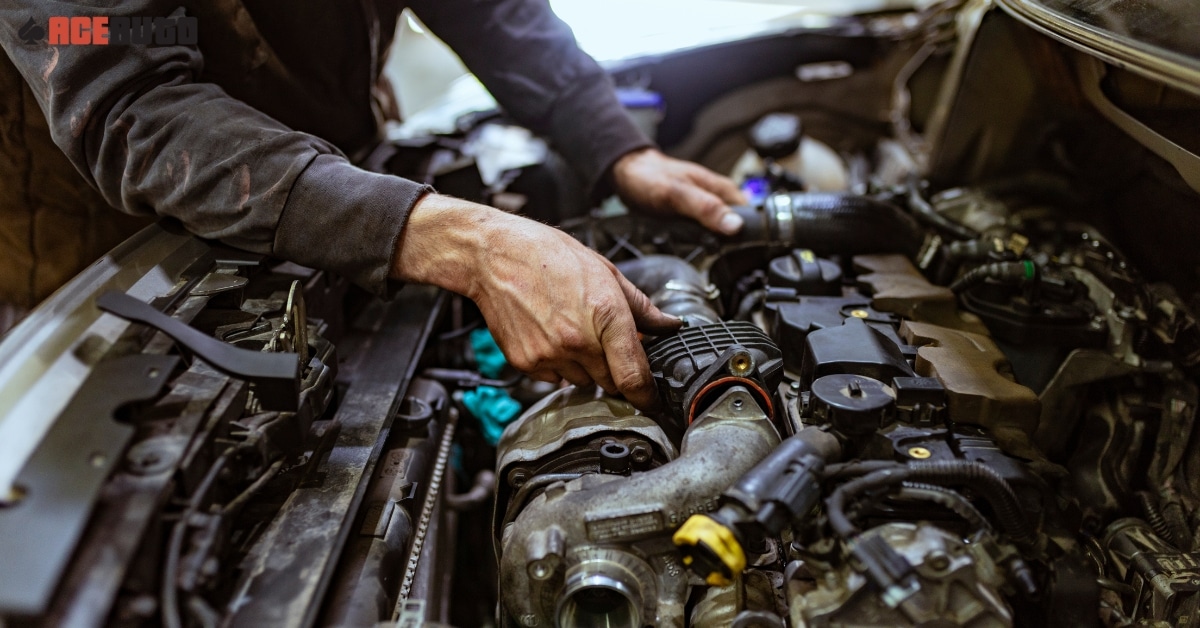All Categories
Featured
Routine engine tune-ups are vital for keeping your automobile's efficiency, enhancing fuel efficiency, and expanding its life expectancy. Whether you're a skilled car owner or a beginner, understanding the vital aspects of an engine tune-up can help you maintain your cars and truck running efficiently for many years. Right here are some vital ideas to direct you with the procedure.
- Modification the Flicker Plugs. Ignition system are small but mighty elements that play a vital function in sparking the fuel-air blend in your engine. In time, they can wear or come to be fouled, resulting in poor engine performance, decreased fuel efficiency, and hard beginnings.
During a tune-up, examine your ignition system for wear and change them as essential. For most vehicles, trigger plugs need to be changed every 30,000 to 100,000 miles, depending on the type and product. Fresh trigger plugs ensure efficient combustion and smoother engine operation.
- Inspect and Change the Air Filter. The air filter is your engine's first line of defense versus dirt, debris, and other contaminants. A clogged up or unclean air filter can limit airflow, triggering your engine to work more challenging and consume more gas.
Check your air filter throughout a tune-up and replace it if it's unclean or previous its suggested service interval. A tidy air filter boosts engine performance and boosts fuel economic climate.
- Inspect the Fuel System. Over time, your gas system can accumulate dust and carbon down payments, minimizing engine performance and gas performance. Cleansing the gas injectors and gas lines throughout a tune-up aids keep correct fuel shipment and combustion.
You can utilize a fuel system cleaner or have a professional mechanic do a more detailed cleansing. This step is specifically useful for older cars or automobiles regularly driven in stop-and-go traffic.
- Check the Belts and Hose pipes. Belts and hoses are essential for various engine functions, such as running the alternator, water pump, and air conditioning. During a tune-up, look for splits, fraying, or indications of wear on these elements.
Change any kind of worn-out belts and hose pipes to stop possible break downs. A broken belt or dripping pipe can lead to engine overheating or loss of power, so resolving these issues without delay is necessary.
- Change the Engine Oil and Oil Filter. Engine oil is crucial for oiling moving components, lowering rubbing, and controling engine temperature. With time, oil comes to be contaminated and loses its efficiency.
As part of a tune-up, replace the engine oil and oil filter. Use the kind of oil recommended by your car's manufacturer and stay with the suggested adjustment intervals. Tidy oil maintains your engine running efficiently and protects against premature wear.
- Examine the Battery and Charging System. A healthy and balanced battery is vital for starting your auto and powering its electrical systems. During a tune-up, check the battery's voltage and evaluate the terminals for corrosion. Tidy the terminals if needed and ensure a safe link.
Furthermore, test the generator and charging system to ensure your battery continues to be billed during operation. If your battery is weak or old, take into consideration changing it to avoid unexpected breakdowns.
- Flush and Fill Up the Coolant. The air conditioning system manages your engine's temperature level, preventing it from overheating. Old or infected coolant can shed its effectiveness, causing potential engine damage.
During a tune-up, flush the old coolant and change it with a fresh mixture. Check the radiator, thermostat, and pipes for leaks or damage. Maintaining the air conditioning system in good condition ensures your engine runs at the appropriate temperature level.

- Address Caution Lights and Unusual Symptoms. Modern cars are outfitted with diagnostic systems that notify you to potential concerns with control panel warning lights. If your check engine light or any various other warning indications get on, address them throughout your tune-up.
Additionally, focus on uncommon symptoms such as weird noises, rough idling, or reduced fuel efficiency. A specialist technician can diagnose and solve these problems throughout the tune-up process.
- Do Not Fail To Remember the Exhaust System. Your vehicle's exhaust system gets rid of harmful gases from the engine and makes certain appropriate emissions. Check the exhaust system for leaks, corrosion, or damages during a tune-up. A defective exhaust system can influence engine efficiency and bring about ecological and safety problems.
- Usage High-Quality Components and Fluids. When replacing parts or rounding off fluids throughout a tune-up, always go with high-quality items that fulfill your automobile's specs. Making use of substandard components or wrong liquids can negatively impact your engine's efficiency and durability.
Verdict: Regular Tune-Ups Are Secret to Engine Health. Taking the time to tune up your engine guarantees it operates efficiently, conserves gas, and reduces the threat of failures. Whether you do these tasks yourself or depend on a trusted auto mechanic, normal tune-ups are a financial investment in your vehicle's reliability and long life. Adhere to these suggestions, and you'll appreciate a smoother, much more reputable ride for several years to find.
Latest Posts
Grab Limited-Time Auto Repair Specials in Chicago at Montclare Auto Repair
Discover Budget-Friendly Auto Repairs with Montclare’s Monthly Service Specials
Explore the Top Auto Repair Discounts in Montclare, Chicago
More
Latest Posts
Grab Limited-Time Auto Repair Specials in Chicago at Montclare Auto Repair
Discover Budget-Friendly Auto Repairs with Montclare’s Monthly Service Specials
Explore the Top Auto Repair Discounts in Montclare, Chicago
